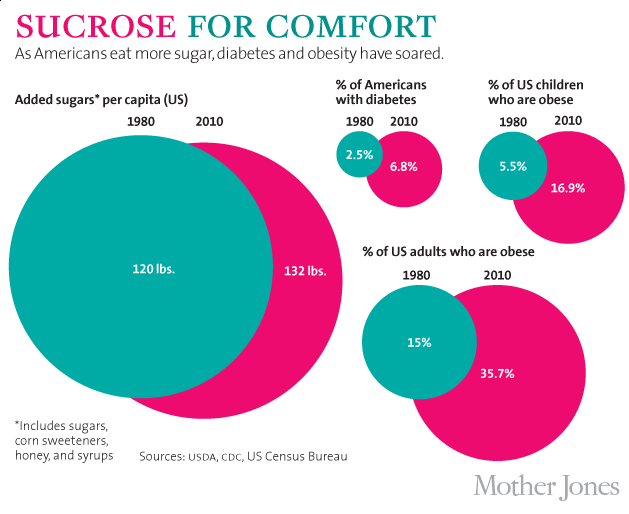For years, the sugar industry has had to fight negative publicity – and for good reason. Sugar and all its sweet goodness has been blamed for childhood hyperactivity, cavities, diabetes, obesity, and cancer, among other things. But fought back the industry did, and they were largely successful, distracting consumers by blaming other culprits and spending heavily on positive marketing.
The Sugar Industry’s Lies
But the research continues to pile up. In an extensive Mother Jones piece, we learn just how much effort was put into the sugar industry’s campaign to keep the truth from us. Effort and money. The sugar people spent loads of cash on investigating the negative effects of sugar substitutes. And while we aren’t here to say things like aspartame are good for you, the sugar industry’s efforts were far from noble.
For instance, way back in 1942 a document was circulated among sugar cane and beet producers, giving them help in countering the anti-sugar campaign that (gasp!) was encouraging weight conscious women to forgo the sweet stuff. From 1975 to 1980, the Sugar Association spent over $650,000 funding 17 studies that would ultimately support the sugar industry. These studies suggested sugar may be good for depression and even weight management. And the list goes on.
Sugar is natural. But at the rate it is consumed by modern Americans, it is anything but healthful. The average American is said to consume about 70 grams of fructose each day. Children consume 7 trillion calories of sugar from beverages alone every year.
So, what’s the issue? Why should sugar consumption really matter?
It matters for several reasons, but primarily because sugar causes disease.

The Dangers of too Much Sugar
In the latest of many studies on sugar’s negative effects, we learn that increased sugar intake equals an increased risk of diabetes, even with things like lifestyle, obesity, aging, and more accounted for. Though it stops short of causation, according to the researchers, it gets awfully close.
For every increase in sugar availability (equal to a can of soda per day) there was a 1 percent rise in diabetes. While 1% might not seem significant, consider how many people drink multiple sodas each week or even each day.
“No other food types yielded significant individual associations with diabetes prevalence after controlling for obesity and other confounders,” said the study published in PLoS One. “Differences in sugar availability statistically explain variations in diabetes prevalence rates at a population level that are not explained by physical activity, overweight or obesity.”
And if this wasn’t significant enough, further research published in Molecular Cell and reviewed here on NaturalSociety described exactly how sugar consumption and cancer risks are connected. Basically, sugar consumption causes the release of insulin by way of a specific protein. It’s this protein that is known to be a factor in the development of many types of cancer.
Companies will spend millions (and more) to convince you their product is safe for consumption. And it’s only through a concentrated effort and unbiased science that we are able to see these food products may not be everything they are promised to be. While it’s common sense that sugar isn’t a good weight loss aid, information on how it actually harms you is slightly harder to come by.
Additional Sources
Cancer's Favorite Food - Fructose - Found in Everything You Eat?
Mother Jones
Sugar triggers gluttony and there are numerous studies proving it. If reading isn't your thing then begin here - Sugar: The Bitter Truth- March 24, 2011
Can Sugar be Poisonous?
Experts Agree – Sugar is a Health Destroyer
Carcinogenic Sugar Hiding in 4 Common Food Products
Revealing the Connection Between Sugar and Cancer…Again
Medical Disclaimer
The content of this website is provided for general informational purposes only and is not intended as, nor should it be considered a substitute for, professional medical or health care advice or treatment for any medical or health conditions. Do not use the information on this website for diagnosing or treating any medical or health condition. If you have or suspect you have a medical problem or health issues, promptly consult your professional registered / licensed health care provider.
The information contained in this blog and related website should not be considered complete as it is presented in summary form only and intended to provide broad consumer understanding and knowledge of diet, health, fitness, nutrition, disease and treatment options.
Dr JPB Prinsloo is the oldest, most established homoeopathic practice in South Africa.
The practice, situated in Pretoria, was established in 1956.
To learn more about homeopathy, homeopathic treatment and the legal requirements for practising as a homeopath, visit:
http://www.biocura.co.za/